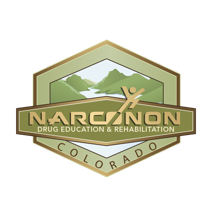New Approach for Methamphetamine Addiction Shows Less Than Promising Results

A study was recently published by The New England Journal of Medicine detailing the results of research conducted on a combination of medications that were evaluated in regards to its effectiveness in treating methamphetamine addiction. The low bar set by this study for what is defined as a successful response to treatment is far less promising than the title of the experiment itself. Currently, there are no MAT drugs for methamphetamine users and there appears to be some misleading data in this study that could cause some people to believe there is a new miracle drug on the horizon where one doesn’t exist at all.
Medication-assisted treatment, otherwise known as MAT, has been an adjunctive therapy for people suffering from opioid abuse issues. These drugs were originally designed to be used short-term for acute detox purposes. The medications allowed users to detox from opioids comfortably, possibly with the hope that more individuals would seek help and not fear withdrawal. The popularity of the off-label use of these medications grew and MAT drugs became prescribed for long-term use in order to maintain and promote abstinence. MAT drugs were only researched and indicated for opioid abuse and dependence since the drugs are either full or partial opioid agonists.
When a drug user and their family are in a major crisis situation, they can become very impressionable in regard to finding help for the addict. The heightened emotional state can allow for a situation where they can be sold anything with the promise of a cure. The United States is one of only two countries worldwide where pharmaceutical companies are permitted to directly advertise to their end-user. Americans are advertised pharmaceutical drugs on a daily basis and some of these marketing campaigns by drug companies are partially to blame for the opioid epidemic. The same companies who were found to be partially responsible for the problem also created another drug that was marketed to the public as a cure for the problem they created
It is the opinion of the author that this type of marketing in the addiction field can potentially exploit emotional and desperate people who are suffering from a substance use disorder and used as an opportunity to sell them a product. The product is usually an alternative drug or medication that promises to help them achieve sobriety, handle withdrawal discomforts, or assist in relapse prevention. The long-term results of MAT are not as amazing as their sales pitch and a recent study shows a high rate of relapse after MAT drugs are discontinued
With that in mind, The New England Journal of Medicine published a study conducted on the efficacy of using a combination of bupropion, a known antidepressant, and naltrexone, a known opioid-blocking medication. The study was looking for a primary outcome of a “response,” with response being defined as a participant providing three methamphetamine-negative urine samples out of four. The study was conducted over a period of twelve weeks and the results were unimpressive, with 13.6% of test subjects having a response to the treatment. This study failed to measure other key factors of substance abuse recovery such as quality of life improvements, employability, functionality of interpersonal relationships, level of overall life satisfaction, etc.
The only foolproof way to handle a substance use disorder is to handle the underlying causes of the addiction. No, not chemical imbalances or mental illnesses, but handling the underlying physical dependence on drugs while addressing coping skills and life skills. No drug can cure a drug problem.
Sources:
- https://www.statnews.com/2018/09/07/richard-sackler-member-of-family-behind-oxycontin-was-granted-patent-for-addiction-treatment/
- https://www.nih.gov/news-events/news-releases/painkiller-abuse-treated-sustained-buprenorphine-naloxone
- DOI: 10.1056/NEJMoa2020214


